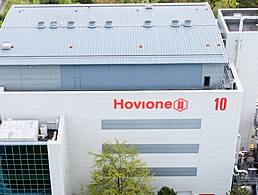How family-friendly will the future workplace be, and what are the key trends emerging in policies surrounding family leave?
There have been a lot of discussions about how flexitime, remote working and policies of that ilk can make employees happier and increase both productivity and retention.
However, there is another pressing welfare-related issue that those considering the future of work have to consider: how family-friendly will the future workplace be, and what kind of changes will be made to policies concerning family leave?
Recent changes in Ireland
In Ireland, there have been substantial changes to family-leave policy in the last few years. In 2016, statutory paternity leave came into effect, giving parents other than the mother two weeks of leave to be taken within the first six months of the birth or adoption of a child.
More recently, An Taoiseach Leo Varadkar, TD, announced a plan to roll out a year of paid family leave to be taken within the first year of a child’s life.
This all being said, Ireland’s policy is not seen as especially generous – there is currently no statutory requirement that this leave be paid, only for a State-provided maternity benefit of €235 a week as of Budget 2018.
This is the main reason many are quick to criticise the Irish family-leave provisions. Though the country has quite a long maternity leave in comparison to Europe and could be characterised as relatively progressive because of the addition of paternity leave, it is not especially well compensated in the grand scheme of European policies.
Sweden, for example, offers a whopping 480 days of paid family leave, with new parents entitled to nearly 80pc of their salaries.
The US – an outlier, but for how long?
The US has long been on the receiving end of excoriations by the wider world about its family-leave policy, with much of the criticism all going along the lines of the US being “the only high-income country” that doesn’t have any federal paid policy in this respect.
The provision of paid family leave in the US is entirely at the discretion of employers. There are also a handful of states – California, New Jersey, Rhode Island, Washington, Hawaii and New York – that have state family-leave policies, the latter of which only came into effect on 1 January 2018.
However, according to the National Compensation Survey, even with these policies, only 14pc of US workers actually get to avail of paid family leave.
Could this be about to change? The notion of paid family leave has garnered broad support. A plan for family leave was detailed in the 2019 budget, albeit outlined in vague terms. So, perhaps the US is heading towards progress – or perhaps, more accurately, catching up with the wider world.
How to make working life more family-friendly
Many working parents will attest that the notion of a ‘family-friendly’ workplace stems far beyond merely offering paid leave.
Speaking to Fast Company, HubSpot EMEA managing director Christian Kinnear explained that creating a workplace culture that facilitates parenting is complicated, and a lot of companies may not be doing as good a job of providing that as they may assume.
“Your organisation could offer the best parental leave on the planet, but if a mom or dad feels guilty working from home because their child is sick, then there’s still a problem.”
In many ways, the answer to providing a positive environment for parents is much like providing a positive environment for employees in general – it’s all about making employees feel like they can live their lives without it impacting their performance.
Even if workplaces have flexible schedule policies, are employees still inclined to give incredulous stares to a parent leaving at 3pm to pick up their child from school? If so, Kinnear argued, employers need to tackle that.
He said employers have to understand that becoming a parent leads to people massively realigning their priorities. Your employees will need to take time out for things such as parent-teacher conferences, and they may not have the flexibility for meetings to go on longer than they are expected due to prior commitments.
It seems likely that the future workplace will have to be a family-friendly one. Millennials, who now make up the majority of the US workforce, will almost certainly demand the same provisions for preserving work-life balance when they enter parenthood as they do today.




